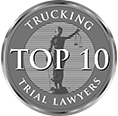The trucking industry and commercial driver’s license (CDL) drivers play a significant role in the transportation of goods and other cargo throughout the country. While they are essential for the health of the economy, the massive trucks can also cause severe harm when truckers or their employers are negligent. Operating any vehicle is dangerous after consuming alcohol or drugs.
However, the potential for crashes to be catastrophic, leading to life-threatening or fatal injuries, is higher when large commercial trucks are involved. Therefore, federal and state laws strictly prohibit truckers from consuming alcohol, even more so than other motorists. Schedule to meet with a lawyer with experience litigating cases involving drunk driving truck accidents in Auburn if you were injured. A dedicated 18-wheeler crash attorney could help you seek the justice you deserve.
Causes of Intoxicated Driving Truck Crashes
Drinking alcohol and operating any motor vehicle is hazardous because it slows the central nervous system and brain activity. While it is highly dangerous for all motorists, the massive size of trucks makes accidents more severe. Some frequent causes of intoxicated driving truck crashes in Lewiston-Auburn include:
- Falling asleep behind the wheel
- Speeding or reckless driving
- Reduced reaction times, concentration, and alertness
- Failure to obey traffic rules and regulations
- Impaired judgment leads to taking unnecessary risks
- Taking turns too quickly or other errors the truck driver would not make when sober
A proactive attorney could investigate and complete an analysis to find the cause and the liable party to build a solid case.
Alcohol Testing Requirements for Truck Drivers
Trucking companies must comply with strict regulations, including drug and alcohol testing, to ensure they employ safe and responsible drivers. The Code of Federal Regulations § 392.5 prohibits commercial truck drivers from being impaired by intoxicating substances and from consuming alcohol within four hours of the beginning of their shift.
Truckers must have a blood alcohol content BAC of no more than 0.04 percent while carrying out their duties and operating the vehicles, which is half the legal limit for non-commercial drivers. Trucking companies must test drivers for alcohol:
- Pre-employment testing before officially hiring the driver
- Ongoing random testing for alcohol and drugs
- After a traffic incident
- When the employer has reasonable cause to believe the trucker is under the influence
Federal regulations also require employers to report the results of all testing they complete on drivers, and failing to comply could mean facing penalties and losing the ability to operate the business legally. A lawyer knowledgeable about Lewiston-Auburn drunk driving truck crashes could investigate to determine compliance with the rules of the statutes.
Determining Liability for Drunk Driving Truck Accidents
Determining liability after a tractor-trailer collision can be challenging because there are several potential options. When truck driver intoxication causes an accident, two potential parties could be a defendant in the lawsuit: the driver and the trucking company that employs the driver.
Failing to adhere to federal laws is cause to seek action against the driver. However, if the employer failed to test the driver for alcohol as the laws require, or the driver has a drunk driving history and other problems that the trucking company should have fired or suspended them for, the company could also be a defendant.
Call an Auburn Drunk Driving Truck Accident Attorney
Personal injury laws could entitle you to compensation if an intoxicated trucker caused an avoidable collision and you sustained injuries and losses. The process of filing claims against commercial truckers and the companies that employ them is complex and could involve numerous defendants and insurers.
A diligent lawyer with experience handling drunk driving truck accidents in Auburn could take the legal work and negotiations off your hands and fight for a fair settlement amount. Call today to schedule a case review.

















